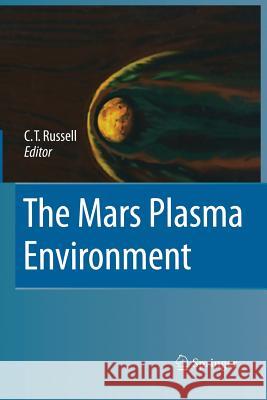The Mars Plasma Environment » książka
The Mars Plasma Environment
ISBN-13: 9781489981448 / Angielski / Miękka / 2014 / 501 str.
The Mars Plasma Environment
ISBN-13: 9781489981448 / Angielski / Miękka / 2014 / 501 str.
(netto: 573,71 VAT: 5%)
Najniższa cena z 30 dni: 578,30
ok. 22 dni roboczych
Dostawa w 2026 r.
Darmowa dostawa!
Mars sits very exposed to the solar wind. Ironically Mars possesses the strongest remanent magnetization of any body thus far visited in the solar system, yet the scale size of this magnetization is so small that it provides an insignificant shield against the solar wind. Compared to Venus that is eight times as massive, Mars has but a weak hold on its atmosphere. Mars has been the subject of intense study over the last four decades and we have learned much about its surface and lower atmosphere but studies of the solar wind interaction with its upper atmosphere and ionosphere have been much more rare. Mars 3 and 5 provided the first significant data on the induced magnetosphere, deflection of the solar wind and erosion of the atmosphere. PHOBOS-2 extended these measurements with a magnetometer and a plasma package, ASPERA (Automatic Space Plasma Experiment with a Rotating Analyzer). Itincreased our understanding of the interactions, but lasted far too short atime. Mars Global Surveyorcarried amagnetometer and an electron reflectometer and discovered the martian magnetic anomalies but added only slightly to our understanding of the interplay between the solar wind and the atmosphere. When the European Space Agency embarked on its Mars exploration strategy, it chose to include a comprehensive plasma package, on its pilot mission, Mars Ex press. Inretrospect it should have complemented this package with amagnetometer but it did not."











